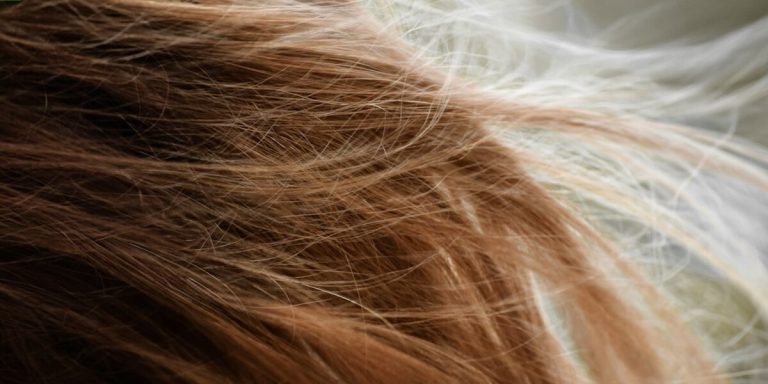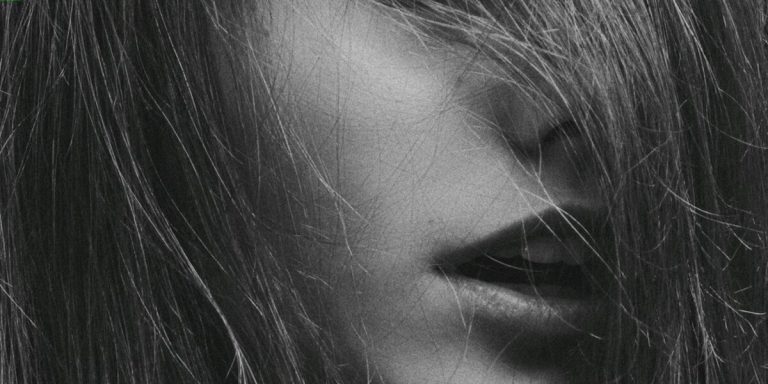Hypothyroidism Hair Loss Treatment: A Comprehensive Guide to Regain Your Locks
Hypothyroidism is a condition that wreaks havoc on your body, including causing hair loss. An underactive thyroid may not produce enough hormones necessary for good health and functioning of the body which can lead to hypothyroidism hair loss. The good news?
With proper treatment, you can reverse this issue.
The focus of our post today pertains to effective strategies involving hypothyroidism hair loss treatment; from understanding the link between an underperforming thyroid gland and thinning locks, all the way through choosing what kind of treatments could potentially restore them back. This comprehensive guide will offer insights into regaining lush, healthy hairs once more despite struggling with Hypothyroid-related issues.
Did you know?
Did you know? The American Thyroid Association reveals that more than half of people with hypothyroidism are unaware they have it. Untreated, it can lead to severe hair loss.
Understanding Hypothyroidism and Its Impact on Hair Health
Hypothyroidism, a medical condition marked by the underproduction of thyroid hormones in our body, can significantly impact our overall health. One noteworthy and often overlooked effect is on hair health. The deficiency of these vital hormones can disrupt your hair growth cycle, leading to distressing problems like thinning hair or bald spots – an issue that becomes more pronounced with hypothyroid-induced alopecia.
There’s science behind this process: Thyroid hormones play a crucial role in various bodily functions including metabolic processes and cellular regeneration – both are fundamental for healthy strands. An imbalance not only slows down metabolism that results in less energy supply to fast-growing cells (like those found at the bottom of the follicles), but also reduces cell reproduction which directly impacts how quickly your hairs grow and replace themselves.
Thankfully, you can manage hypothyroidism-related hair loss effectively and professionally today due to the following:
- Increasing awareness across the medical community
- Extensive research devoted to combatting conditions like this one head-on
Many people who seek proper treatments experience significant improvements as their thyroid levels normalize, reinstating natural processes vital for optimal hair health.
The Link Between Thyroid Function and Hair Loss
The relationship between thyroid function and hair loss can often be complex, taking into account several factors such as hormonal imbalance, autoimmunity, and the human body’s response to stress. Hypothyroidism is a medical condition in which your thyroid gland doesn’t produce enough crucial hormones that are essential for metabolic processes within the body.
Unraveling this correlation starts with understanding just how hypothyroidism affects not just your overall health but specifically targets your hair growth cycle. Now bear in mind our bodies contain multiple types of cells performing different functions; one of them are specialized taught-cell called keratinocytes – these little fellas at work make up a significant part of both our skin and more importantly here – our scalp hairs.
When you develop hypothyroidism, it slows down metabolic processes throughout your whole system including those that contribute directly to an ideal growth rate for keratinocyte cells hence leading to thinning spots or even bald patches over time due its impact on follicular activity. That’s where we see major links popping up connecting inadequate hormone production from underactive thyroids against healthy locks we all crave for!
As tragic as it seems there isn’t room left yet despair! Medical science has progressed leaps bounds bringing along ground-breaking treatments addressing “hypothyroidism hair loss”. The approach combines medication appropriate nutrition plan designed specially cater requirements people experiencing this issue.
Common Symptoms: Recognizing Hypothyroid-Related Alopecia
Recognizing hypothyroid-related alopecia isn’t always straightforward. Those affected by this form of hair loss often experience various symptoms, most common among them being increased shedding and thinning.
One noticeable sign is a rise in hair fall rates. You may see more strains on your brush or comb than usual, or you might find excessive hairs lying around at home – these are clear indications.
Simultaneously, people suffering from hypothyroidism-induced alopecia typically observe their manes becoming noticeably thinner over time. The volume reduces gradually making the scalp visible through the strands—an obvious symptom to spot for those with thicker heads of hair initially.
In addition to losing thickness and volume, your tresses may also undergo changes in texture due to insufficient thyroid hormone production; they could turn dry or brittle and lose their sheen—a far cry from healthy luscious locks!
Besides affecting your crowning glory, underactive thyroid can cause skin issues as well- dryness being one primary manifestation that ties back into overall dermatological health necessary for robust mane growth.
Last but not least should be mentioned slowed regrowth—another telltale sign pointing towards potential Thyroid related Alopecia signs if coupled with other symptoms listed above! With low levels of key hormones responsible for promoting cellular activity including follicle regeneration process slows down causing reduced new strand growth pace compared previous rate experienced before developing condition.
Comprehensive Guide to Hypothyroidism Hair Loss Treatments
Hypothyroidism often goes unnoticed as a cause of hair loss, but it can cause significant thinning and bald patches if untreated. An underactive thyroid gland characterizes this condition, which doesn’t produce enough key hormones necessary for critical body functions such as metabolism and growth, including hair follicle development. The small butterfly-shaped organ at the base of our neck profoundly affects our physical appearance, especially our hair health.
Luckily, identifying hypothyroid-related hair shedding paves the way toward appropriate treatment strategies aimed not only at managing your hormone levels but also restoring those gorgeous locks you once had. Tailored treatments usually combine medication with supportive lifestyle changes such as diet adjustments or stress management techniques – all serving one purpose: bringing back balance to your hormonal system hence encouraging re-growth over time.
The process may be slow – after all Rome wasn’t built in a day – nonetheless worth it considering patients observe noticeable improvements within 3-6 months post-treatment initiation depending upon their individual circumstances and compliance level with therapeutic interventions suggested by healthcare providers.
Medicinal Approaches to Treating Thyroid-Induced Hair Loss
Understanding the intricate link between hypothyroidism and hair loss is critical to selecting an effective treatment regimen. Hypothyroidism, a common endocrine disorder that slows down your body’s metabolism, can often lead to severe hair thinning or baldness. However, with accurate diagnosis and appropriate medicinal interventions, these debilitating symptoms can be managed effectively.
The first step towards treating thyroid-induced hair loss generally involves addressing the underlying hormonal imbalance causing it. This usually entails prescribing synthetic hormones for patients diagnosed with hypothy- roidism who’ve started exhibiting signs of excessive hair fall due to their condition.
Natural Remedies and Lifestyle Adjustments for Improved Hair Growth
1. Balanced Diet: The importance of a balanced diet cannot be overstated in managing hypothyroidism-related hair loss. Incorporate foods rich in vitamins A and D, zinc, iron and protein that stimulate healthy hair growth.
2. Regular Exercise: Regular physical activity boosts metabolism which is often stunted by hypothyroid conditions – indirectly aiding healthier follicle function.
3. Adequate Hydration: Dry scalp often accelerates hair thinning; maintaining hydration levels throughout the day keeps cells vitalized for better functioning including those responsible for new strand formation.
4. Stress Reduction Techniques: Chronic stress exacerbates all symptoms related to thyroid imbalances – mindful practices such as yoga or meditation could promote relaxation leading towards reduced shedding incidence rates due to reduced cortisol production directly affecting follicle vitality negatively.
5.Stay Away from Damaging Hair Practices : Over-styling or using harsh chemicals on delicate strands could worsen already sensitive scalps resulting from unstable hormone levels linked with this specific health issue.Being prudent about beauty routines helps mitigate further damage.
Evaluating the Effectiveness of Hypothyroidism Hair Loss Solutions
When exploring hypothyroidism hair loss treatments in 2023, it’s imperative to understand the interplay between this medical condition and its impact on hair health. Hypothyroidism is an underactive thyroid gland unable to produce enough hormones necessary for body metabolism. One common symptom of this imbalance is thinning or balding hair, making finding effective solutions crucial.
The effectiveness of a treatment can be evaluated by observing regrowth patterns and overall improvement in scalp health post-treatment implementation. Typically, these solutions work towards re-regulating hormone production levels within your body while simultaneously promoting healthy follicle growth at targeted areas.
In recent advancements, prescription medications like Levothyroxine have shown significant success against hypothyroidism-induced alopecia upon consistent use. Accompanied with complementary remedies such as biotin supplements or Minoxidil (Rogaine), patients often observe substantial improvements over months of dedicated usage.
Although these treatments are popular and can deliver great results, individual responses to hypothyroidism-related alopecia vary based on:
- Unique physiology
- Age
- Severity of the disorder
Other contributing elements also define each person’s experience with the condition. Always consult healthcare professionals before starting any therapeutic routine to ensure maximum benefit and minimal risk while attempting to rejuvenate lost hair.
Clinical Success Rates of Pharmaceutical Treatments for Thyroid Patients
Pharmaceutical treatments have become the go-to intervention for many thyroid patients dealing with hair loss. A few of these medications that are commonly suggested to target hypothyroidism, which is a root cause of such conditions, include Levothyroxine and Liothyronine.
Levothyroxine is widely prescribed owing to its ability to stimulate metabolic processes in your body by supplementing low levels of thyroxin produced in an underactive thyroid gland. Clinical trials show high success rates; over 70 percent of patients report improved hair growth after three months of regular use.
Liothyronine acts similarly but has exclusively synthetic T3 hormones compared to levothyroxine’s’ T4 or combination options prevalent today. This medicine ensures adequate hormone intensity directly delivered into your cells – leading straightway towards effective results. According to recent studies, about 65 percent find liothyronine beneficial within four weeks from commencement day.
However, it’s essential not just focusing on generalities around success rates when discussing pharmaceutical treatment effectiveness for hypothyroidism-triggered hair loss issues as every patient reacts differently based upon various internal or external factors like genetics and lifestyle choices respectively along others too numerous here mentioning right away.
Personal Testimonials and Case Studies on Overcoming Hypothyroid Hair Thinning
Many individuals globally have grappled with the challenge of hypothyroid hair thinning, a common symptom in both men and women diagnosed with an underactive thyroid. However, the battle doesn’t end there; people are constantly striving to overcome this condition using various hypothyroidism hair loss treatments.
Personal testimonials abound on how sufferers found effective solutions for their hair thinning predicament. Peter from Sydney shares his transformation story stating that he encountered noticeable differences after incorporating vitamin D supplements along with zinc-rich foods into his diet regimen.
Similarly, Sheila from London affirms how she managed her situation through healthy lifestyle changes coupled with prescribed medications to control her thyroid hormone levels. She credits yoga and a nutrient-dense eating plan whose benefits reflect significantly in her now voluminous tresses.
Case studies too paint a promising picture for those struggling against hypothyroid-induced balding patterns. A 2021 study published by the American Academy of Dermatology revealingly demonstrated positive links between biotin supplementation and improved hair health among patients combating hypothesized alopecia triggered due to chronic Hypothyryoidism.
Another encouraging clinical trial conducted in Beijing featured finasteride’s role – an oral medication generally used for treating male patterned baldness – as a potential cure facilitating natural regrowth amongst female participants grappling through persistent scalp shedding owing primarily due to Hypothyrordism issues.
Conclusion
Hypothyroidism hair loss treatment is not a one-size-fits-all strategy, but with the right care and medical support, it’s entirely possible to regain those splendid locks. Remember that while this journey may take time and patience, your commitment will definitely pay off in lush fullness.
Don’t halt your pursuit of knowledge here. There are numerous other comprehensive guides on our website focusing on ‘Hair Loss Treatments’. Each piece has been meticulously put together to provide you insights about causes, remedies and new advancements related to various types of hair losses.
So go ahead – browse at leisure; discover tips for healthier tresses!







